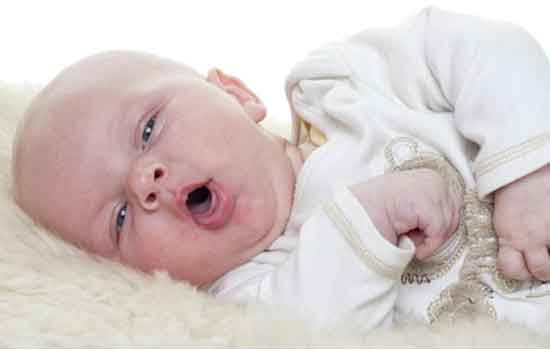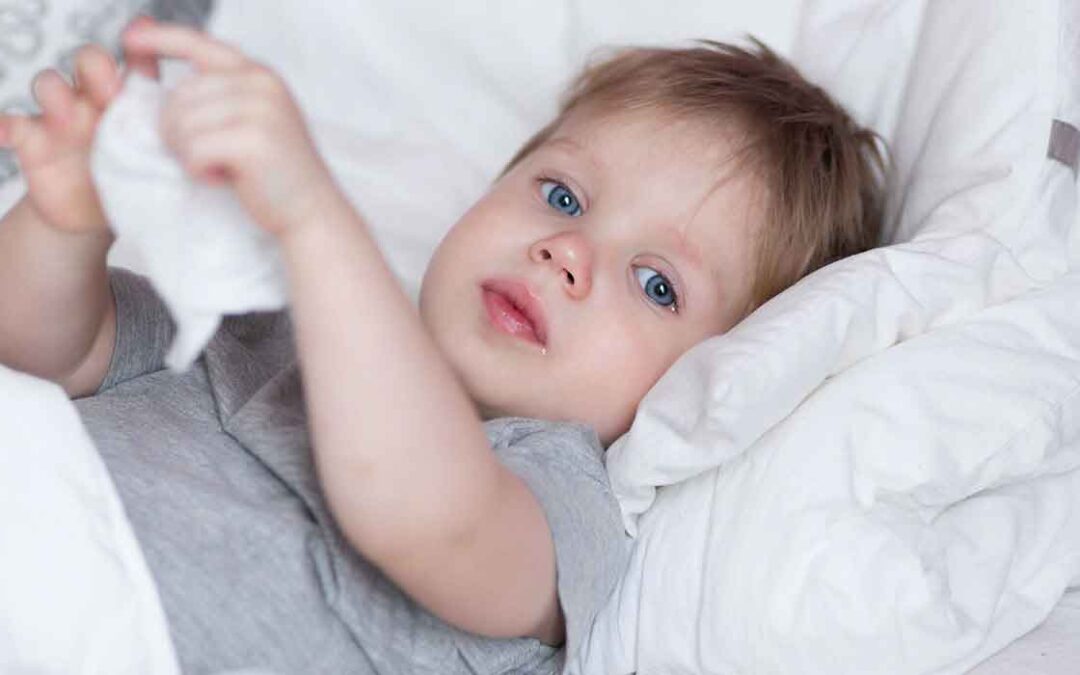Cough in babies

Baby time is a special memory for most of us. But for various reasons, the experience does come with lots of issues that need attention and caution. Night-time cough is one of them. This may be stressing at first as no parent loves to see their little one in distress, especially during the night. Nighttime cough in babies is regular and the symptoms may not be too serious but can lead to various issues later point of time.
We may think of it as a major issue, but the cough in babies is a procedure of defense from the body against the respiratory tract illness. Various tract infections cause the mucus to secrete into the airways which are a part of the response to the infection. Cough is actually causing your baby to clear the mucus from the respiratory tract.
Needless to say, coughing at night means you need to take action against the infection.
In infants that have crossed the age of 3 months, running nose is not a major issue. This happens as the nasal area becomes a bit congested. Also, the baby’s immunity system is not strong enough to deal with various types ofallergic reaction that affects his airways. The system is sensitive and the baby can easily develop symptoms from an allergy.
Keeping your house cough-free
One might think why and how the cough in babies develops even if the baby stays at home. This is common as many elements or allergens may cause an interruption in the airways of your baby. Hence, it is important to keep your house allergy-free to prevent coughing at night. The first thing you need to do is to check for any molds in ceilings or edges. Molds may go unnoticed and the harmful bacteria can enter into the nose easily and cause various types of allergies. You need to look for signs of mold such as feeling cold near walls, coughing in closed rooms, the allergic reaction on the skin and so on.
The next part is to keep all chemicals away and secured in closed cabinets. These being volatile, can travel through the air and cause nose coughs. You may look forward to removing products such as thinners, paints, primers, dish detergents, cloth detergents, shampoos, perfumes, deodorants, nail paint removers, etc.
For making your home free from allergens, make sure that it has no dust accumulation. You should get the house cleaned regularly. And once in a week always take make that extra little effort to remove dust from corners and edges such as ceilings and behind the furniture. Also, do make it a point to remove cobwebs from the house.
See if there is someone sick or allergic in the house
The body’s metabolism of a baby is very delicate. This means that he can get sick from a sick person very easily. And since cold and cough symptoms are contagious, the risk becomes more if there is someone already having these issues in the house. Often at times, the cuteness of our baby makes us forget that we are infected.
A tiny cough usually doesn’t stop us from picking up, playing with or kissing our little one. But this could harm in ways we did not imagine. Runny nose or sneezing can transfer the allergic bacteria from air into our child’s respiratory system. This can cause nighttime coughing. Hence, it is always important to stay away from a baby if you are having the symptoms of cold or cough. Asking anyone having the same to keep a distance from the baby is never a bad idea.
Adverse room conditions in the room at night
Nighttime cough is common but they do indicate that there is something wrong. Continuous nighttime cough can be harmful and if your baby is coughing continuously for many days he can develop allergies that are hard to go away. Also, coughing causes strong movements of the chest which can lead to pain in the muscles. The reason might be in your room. Here are a few room factors that might cause nighttime coughing:
- Nighttime room temperature is below the average one- install a heater to counter this
- Mold or mildew growth near the wall where the baby is sleeping- get it treated professionally as soon as possible
- An open-air passage such as a window can cause sneezing at night
- Too much humid air can lead to coughing
- Too much moisture in the room can lead to coughing
- Uncomfortable sleeping position such as without any blankets or near a cold furniture
- Emission of smokes can cause coughing. If someone smokes near the baby, it can be harmful
Take note of hygiene
Various unhygienic conditions can lead to certain diseases in babies. And night time cough in babies is no exception. No matter if it’s related to you, your clothes, an area in the home or someone else in the house, hygiene does matter a lot.
To take proper precaution, make sure that you wash your clothes daily and shower daily to keep yourself free from germs, fresh and hydrated. Always use clean wipes and clothes for your baby. Towels should be washed and dried in a perfect manner. Keep a large bottle of sanitizer in the room so that you or anyone can use it prior to touching the baby.
Never put fingers or any foreign object in the baby’s mouths.

Always mop and sweep the floors daily to keep dust and germs away from the floor. Also, ensure that your baby’s skin is cleaned, hairs are free from dandruff and clothes are new and washed with good quality detergent.
Your baby should never sleep close to areas such as bathrooms or kitchens. These areas accumulate harmful bacteria which can hinder the smooth respiratory processes of the newly born.
Treating night time cough in babies
Let’s assume that your baby is into the problem and experiencing the night time cough. Though it may not be anything to worry about, you need to seriously take action to reduce the level of discomfort faced by your baby at night. While prevention is important, the cure is the next step in treating the diseases.
And it doesn’t mean that you should take your baby to pediatrician straight away, you can do things on your own that will reduce the cough and cold. Here is what we suggest you should do before paying fees for a physician:



